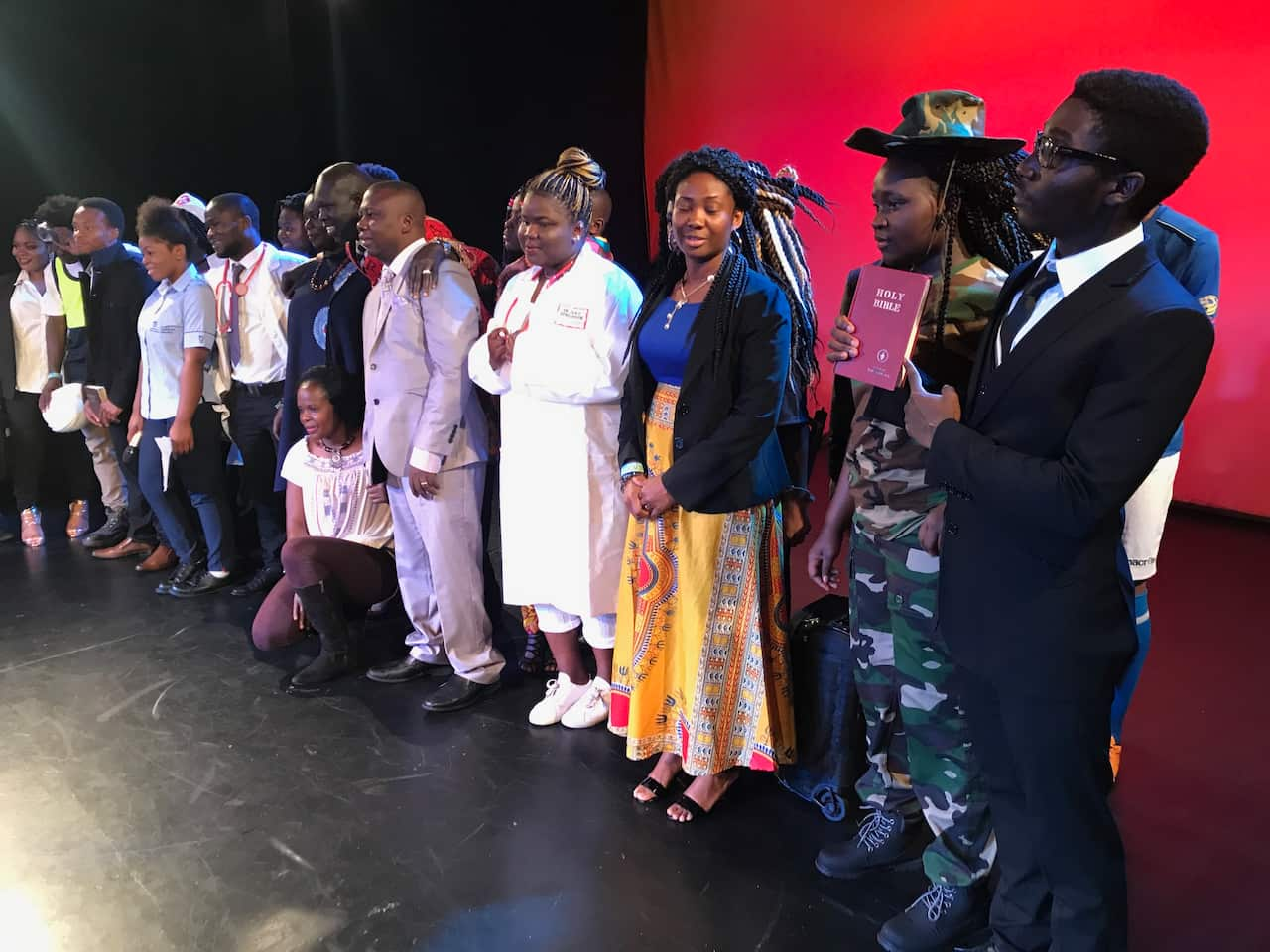Arriving in Australia as a five-year-old, Judy Cole says her life has been “much easier” than that of her parents.
She was too young to remember much of what it was like fleeing civil war in Liberia, but knows the toll it took on her family.
“You know that every day you have to fight to get food to eat, you have to look after your family, you have a responsibility at a very young age,” she says.
“But when you come here, there’s not that much of a responsibility on you. Life is much easier, you know?”
Now a young adult, she says vastly different life experiences created turbulence between her and her parents’ generation, and was partly why she chose to rebel.
At 15, she moved away from home and started experimenting with drugs.
“It was hard when I was in that place, not knowing who to go to, because I was afraid everyone was going to be so judgmental.”
Ms Cole no longer takes drugs, and has joined a close-knit church community she credits with helping her stay on the right path.
Ms Cole recently shared her story at an African Youth night in western Adelaide.
Sata Fahnbulleh from Omega Fire Church organised the event in conjunction with the African Communities Council of South Australia.

She says the program aims to help young people from diverse African backgrounds feel at home in Australia and in their communities.
“We have been through a lot, yes,” she says.
“From back home, we’ve experienced war, we’ve experienced rape, we’ve experienced torture and trauma, but that is not the end of life.”
“Tonight is about change, it’s all about empowerment.”
Ms Fahnbulleh says through singing, comedy and performance it’s a way of bringing young refugees together and talking through issues such as disempowerment and poverty.
She also hopes to challenge a narrative of African culture in Australia that she says can often be portrayed negatively.
“It’s really sad to hear all things negative in the news about African people,” she says.
“About violence, about gangs, all these things. That’s not our culture. We are beyond violence, we are beyond negativity; we are beyond drugs and alcohol.
“This is the beginning of showing who we are, showing our true culture."
Nicholas Procter, a Professor in mental health at the University of South Australia, says Ms Cole’s story is not unusual among refugees.
“The data tells us that people of refugee backgroundS don’t particularly stand out as having a substance use problem, but anecdotally and at the level of service delivery, we know that it is a major concern,” he says.
He adds, those who arrive in Australia as children face vastly different challenges to their parents.
“They’re also a group that can be our teachers, they can teach us how to survive… negotiate new environments and new structures and systems.
“Once that’s actually happening, they may need to let go of other ways, traditional ways [and] ways of negotiating with mothers and fathers.
“It’s about that negotiation between two worlds.”
At the youth event, Sata Fahnbulleh hopes those in the audience will take home the message that it’s possible to ask for help before small problems get worse.
“There are so many services out there in Australia that are willing to support us, but we have to reach out,” she says.

